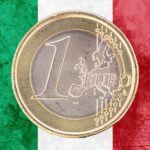The mass protests on the streets of French cities recall the first years of the American War of Independence. In the years before and during the American Independence Movement, the resentment that independence advocates harboured was that the Thirteen Colonies were obliged to pay taxes to the British Crown without being represented in the British Parliament by their own elected deputies. The slogan of the founding fathers of American democracy at the time was “No taxation without representation”. Nowadays it could be inscribed on the flags of the Yellow Vests, the movement that opposes additional taxation by Macron’s government. The government represents the interests of the Brussels technocrats, i.e. bankers and large corporations, and not those of the French people. Brussels does not allow holes in the state budget, does not tolerate anyone who does not abide by its fiscal guidelines. The French were persuaded that they retained sovereignty, although for years the princes from Brussels (commissioners of the revolution against sovereignty of states – Timmermans, Juncker and others) have been setting the course for France. Although the French deputies allegedly represent their people in the European Parliament, they are not proposed directly by the people, but by the parties. Most voters have swallowed the bait for years that the parties act in their interests, but even the dimmest dummy gets wise over the years. Voters in the 21st century must not be treated as they were in the 19th: the first cracks in the beautiful image of the handsome president, whom the German media describe as “visionary”, appeared when he reduced property tax on real estate. French citizens could not swallow it. Though the move was supposed to keep money in the country, Macron was denounced by low earners as the “president of the rich”.
The riots on the French roads are mainly due to the standard of living. The more abrupt the drop in the standard of living, the more violent the riots. What happened in a welfare state that was Greece 20 years ago also seems to be a future scenario for France: a gradual impoverishment of society until the outbreak of the next social and political revolution. Even now, 3 million unemployed people in France live on the subsistence minimum, and the proponent of Merkel’s refugee policy and ex-investment banker from the Rothschild Bank, who strangely enough turned into a quasi-socialist, claims that in France “just walking across the street is enough to find a job”.His idea of additional taxation of the fuel was the last straw that broke the camel’s back after thirty, forty years of the failed politics of the Paris elites. The commuters from the outskirts of the city and the losers of globalisation in the province who spend a large part of their income on fuel would hardly make ends meet with the new prices. The lord of the Élysée Palace doesn’t care. He orders a porcelain set for 500,000 million eurosand the Élysée’s budget of 109 million euros a year is three times higher than that of the German Chancellery. Continue reading


















